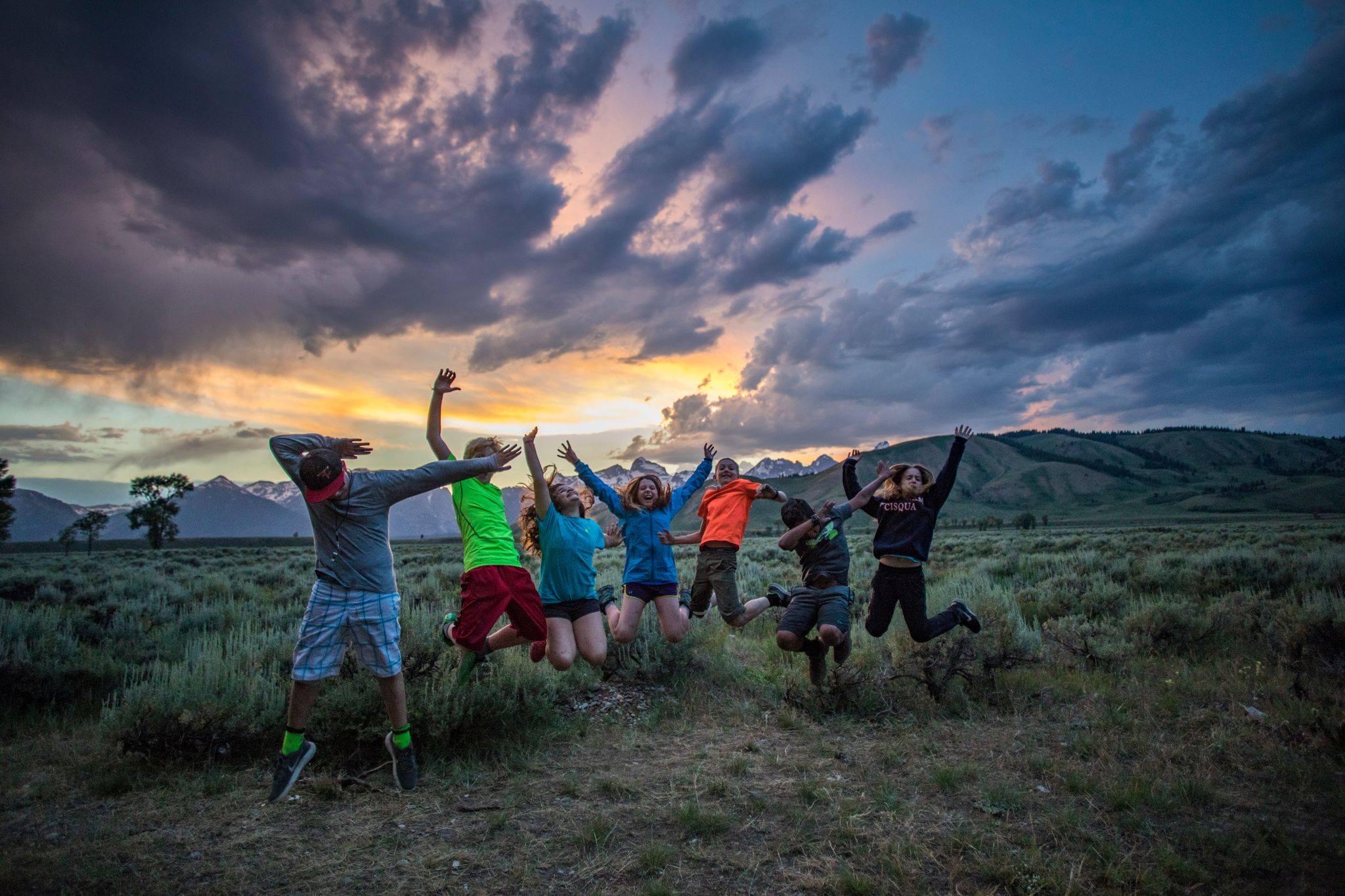By Tom Holland, Director Wilderness Adventures
This morning, the podcast I was listening to on my smartphone was playing a story about disconnecting from our devices. The irony of the moment was not lost on me. As I worked out and listened to the story about how we should take breaks from technology, I looked around and observed that everyone else in the gym was also listening to their headphones or staring at a device. It was in this moment of awakening that I began to miss the silence.
After the story ended (and I was anxious about living in a world where silence no longer exists), I unplugged and let my mind wander. And it felt great. Running on a treadmill with no sounds or videos, my brain took a few moments to remember what to do… and then it just wandered.
While I am a passionate believer in the art of disconnecting, I must admit that our family is never too far from a device. Alexa is a frequent visitor in our house, playing music, announcing the weather, or sharing fast facts. When we get into our car to go a short distance to school or work, it is a rare moment when we are left to silence or simple conversation. Instead, we embrace a podcast or Pandora or the latest Disney song.
I have often thought about the effects that smartphones and devices have on children (my own and the children of others, as my wife and I are camp directors, running programming for youth in locations around the world). Usually I view these devices as a double-edged sword. On the one hand, so many answers to our questions are found at the push of a button. My childhood (which occurred mainly during the pre-internet days) was dominated by seeking answers in Encyclopedia Britannica. Now, my kids have the experience of shouting out a question to Alexa and having her answer immediately. While this generational difference seems to be great in many ways, it is clear that children are losing ground when it comes to critically thinking and problem solving. For me, this has always seemed to be the biggest issue.
However, my device reminded me this morning about another critical issue: the noise. With so much noise coming into our heads at all times, when do we, or maybe more importantly, when do our kids, have time to think? Time to create? Time to self-reflect? Our brains are being nudged at all times by the incoming email, the news alert, or the text message. Social media “likes” or the fact that I can watch Planet Earth II on Netflix, anywhere, anytime, is constantly stimulating. It’s so good and so bad.
All of this reminds me how important it is (and the podcast verified!) to unplug. This is especially true for children who never remember a time of silence like many of us had as kids. We, more than our kids, have a greater ability to find balance, because we remember. We remember when each household had only one phone and to get a hold of a friend you had to call their house and speak to their parents (gasp!). Today’s kids are being raised in a time where the infatuation with the latest YouTube video, or another person’s social media feed, or their text messages is all they have ever known. Consequently, achieving balance and unplugging is definitely more challenging.
The camp programs we run at Wilderness Adventures are electronics free. I love the uneasy moment where each student who joins their group in an amazing wilderness setting is asked to turn over their device. When they do, they give us a look of, ‘And now what do I do?’ as the noise disappears. Then they hit the trails of the world’s wildest and most scenic places with the ability to not only advance their critical thinking skills with us, but also to develop their creativity as their mind is left to wander in relative silence for the next few weeks.
Every few years, there is a strong national push to extend the school calendar to 12 months a year. In doing so, students would constantly engage in academics, making electronics omnipresent. While I would love to see unplugging a more dominant part of the national conversation, the conversation can and should begin in each of our households as we help our kids find balance. That conversation, and the actions we take (do something wild and send them to camp!) are some of the most important parenting moments we have.
More on Wilderness Adventures:
You can choose from 45 programs for the perfect experience in outdoor adventuring all over the world. Smarty Alert: We have an exclusive discount code just for CSP readers – Get $200 off any trip by using code “WA_CSP” at registration. Do something big this summer and go WILD with Wilderness Adventures!
Get social:
Wilderness Adventures
facebook: www.facebook.com/wildernessadventures1973
instagram: @wildernessadventures1973
twitter: @wasummers
email: info@wildernessadventures.com
phone: 307-733-2122
Read here on why Team CSP is #allin with Wilderness Adventures!
Do Something Wild – Wilderness Adventures from Wilderness Adventures on Vimeo.





